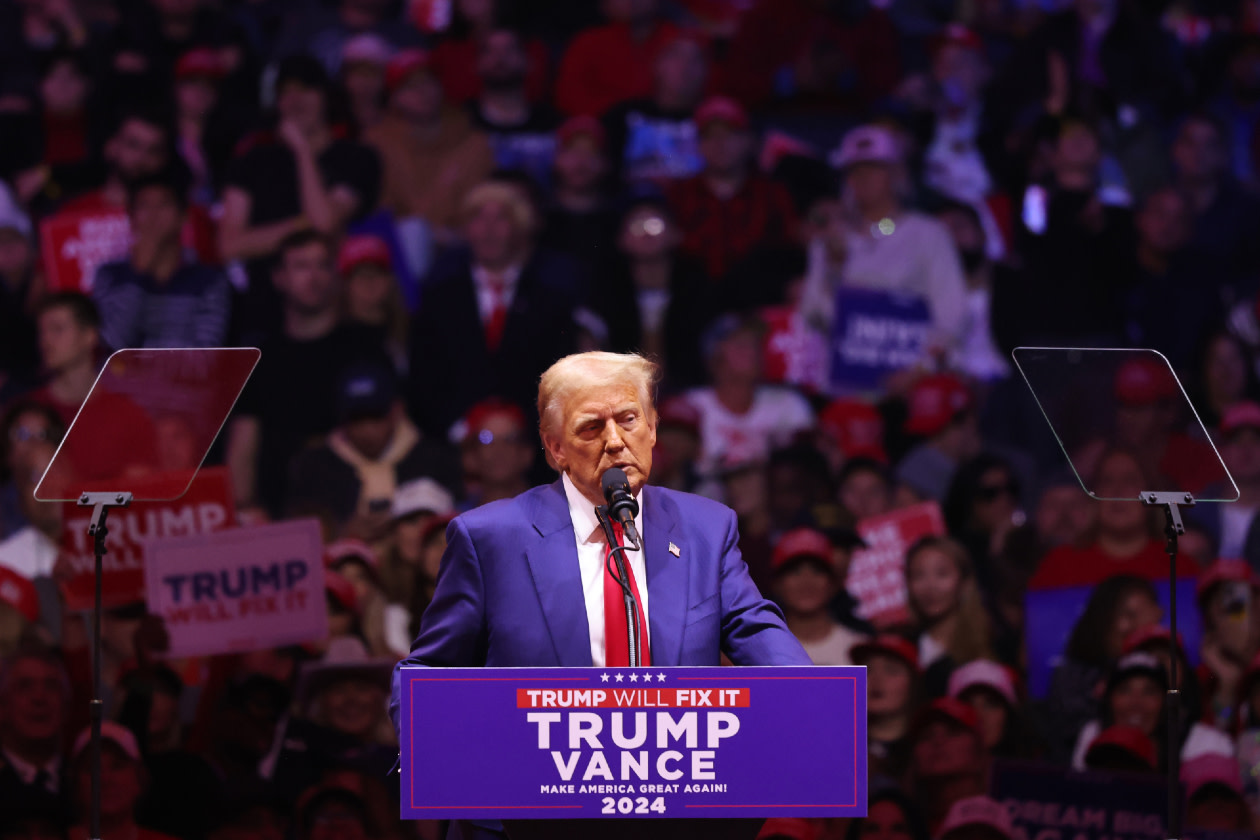As the US gears up for the 2024 Election, the latest polls are showing that the race to the White House is on a knife edge.
A potential Trump victory could trigger market shifts, particularly in industries closely tied to his policies.
Trump’s ‘America First’ agenda could provide support for traditional industries like construction, infrastructure and energy.
Here are two stocks that could be well placed to benefit if Trump becomes the next US president.
As the race to the White House between Trump and Harris draws to a close, make sure you don’t miss out on our latest expert US investment ideas and insights.
Sign up to our weekly Editor’s Choice email to stay up to date on all things US Election.
This article isn’t personal advice. If you’re not sure an investment is right for you, seek advice. Investments and any income from them will rise and fall in value, so you could get back less than you invest. Ratios also shouldn’t be looked at on their own.
Investing in an individual company isn’t right for everyone because if that company fails, you could lose your whole investment. If you cannot afford this, investing in a single company might not be right for you. You should make sure you understand the companies you’re investing in and their specific risks. You should also make sure any shares you own are part of a diversified portfolio.
Ashtead
Ashtead is one of the largest equipment rental companies, providing industrial and construction equipment to a wide range of sectors.
The business model is largely based on renting out heavy machinery. And with the vast majority of its revenue coming from the US, the political landscape can have a material impact, despite this being a UK-listed name.
After a few tough quarters where overspending during a market slowdown led to some setbacks, things are now stabilising.
Investment is coming in at the low end of guidance, which has helped improve their free cash flow outlook. Growth has slowed compared to last year's record levels, but the underlying business remains strong.
Recent policy decisions mean the region has several structural tailwinds, like the onshoring of supply chains and government-led infrastructure expansion.
If Trump were to win, we might see a renewed focus on traditional infrastructure spending, which would benefit Ashtead directly.
As a large-scale operator, it’s in better shape than smaller competitors to capture big chunks of these larger-scale projects.
It’s also focusing on growing the speciality business – things like scaffolding, flooring, and climate control. This diversification helps create more resilience in economic downturns.
More recently the strategy has shifted to cash retention after an expansion cycle, which we think makes sense. The balance sheet is in decent shape, so it’s more a strategic shift than a forced one – which is positive.
Overall, we’re optimistic about Ashtead's long-term potential and think it could be well-positioned to benefit from a new US administration that focuses on infrastructure spending.
The valuation has ticked higher this year despite some softer growth, which does increase the chance of a poor reaction to any missteps.
Exxon Mobil
Exxon Mobil is one of the world’s most influential energy companies, with a vast integrated business spanning from exploration to refining and chemicals. Despite the transition toward renewables, it continues to dominate the oil and gas landscape.
A key driver behind this dominance is the company’s expansive upstream operations. Exxon’s ability to extract oil and natural gas efficiently positions it well in a volatile market.
Meanwhile, its downstream operations, like refining and chemical production, provide a buffer when oil prices fluctuate, keeping the revenue streams diversified and resilient.
Investments in carbon capture, hydrogen projects, and renewable energy are growing, but they still play a secondary role to the company's core oil and gas activities.
This balance helps Exxon ride the wave of the current energy transition, while continuing to cash in on its traditional operations.
A Trump win could bring Exxon regulatory relief, including relaxed environmental restrictions and lower corporate taxes, both of which could enhance profitability and support increased domestic production.
Exxon’s financial strength is a key differentiator.
With a strong balance sheet and substantial free cash flow, it has the firepower to maintain its dividend payments and continue its stock buyback programs. Though nothing is guaranteed.
There are risks. Refining margins have seen some softness of late and with global demand looking uncertain, we can’t rule out weaker oil prices.
Somewhat counterintuitively, that’s something a Trump win could potentially exacerbate if supply ramps up.
Exxon remains a leader among the energy giants, but like the rest of the industry, it faces the dual challenge of balancing its traditional business with a growing need to innovate in the clean energy space.
A Trump presidency could help accelerate Exxon’s existing strengths, though they’re somewhat reflected in its premium valuation already.
Stay ahead with instant access to our latest articles, expert research, and in-depth insights — right from your mobile device.
(Photo by Michael M. Santiago/Getty Images)
This article is original Hargreaves Lansdown content, published by Hargreaves Lansdown. It was correct as at the date of publication, and our views may have changed since then. Investments rise and fall in value so investors could make a loss.
This article is not advice or a recommendation to buy, sell or hold any investment. No view is given on the present or future value or price of any investment, and investors should form their own view on any proposed investment. This article has not been prepared in accordance with legal requirements designed to promote the independence of investment research and is considered a marketing communication. Non-independent research is not subject to FCA rules prohibiting dealing ahead of research, however HL has put controls in place (including dealing restrictions, physical and information barriers) to manage potential conflicts of interest presented by such dealing. Please see our full non-independent research disclosure for more information.



